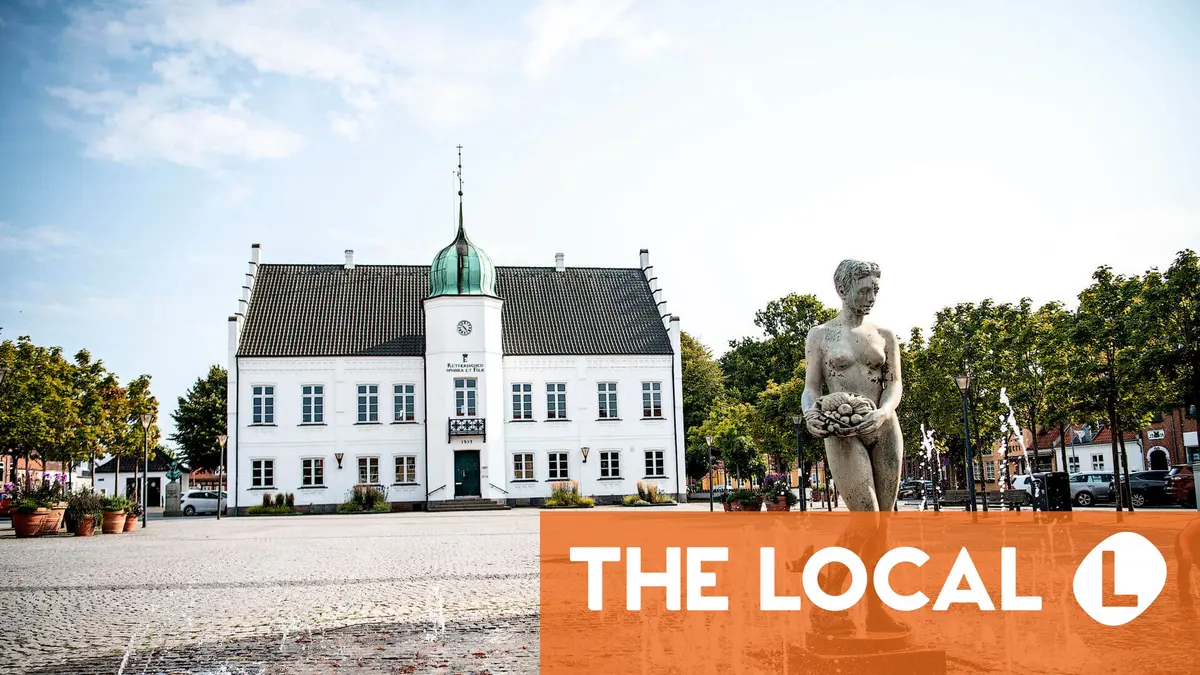Delays to a huge infrastructure project and torrential rain have combined to make this a bad week for one Danish island, and the fallout from the Nets system breakdown. Our weekly column Inside Denmark looks at some of the stories we’ve been talking about this week.
Lolland’s soaking compounds blow over Fehmarn link
Many foreign residents in Denmark – or potential future residents of Denmark – may be looking forward to the opening of the Fehmarn Belt Link, the impressive project which will see an 18-kilometre underwater tunnel constructed between Danish island Lolland and its German counterpart Fehmarn.
The tunnel has already been many years in the making, with an initial agreement between the Danish and German governments dating back to 2010 and the initial excavation work under the Fehmarn Belt having commenced in 2020 and been completed earlier this year.
Each country is responsible for its side of the tunnel’s construction, with Femern A/S, a subsidiary of the Sund & Bælt Group that runs the Great Belt Bridge, overseeing construction on the Danish side.
The goal is for the connection to open by late 2029, allowing a much shorter route between Copenhagen and Berlin, and the respective eastern parts of Denmark and Germany, than that which currently exists.
The project appeared to receive a blow this week though, with reports that it is unlikely the rail element of the link will be ready to open before 2032. That comes after Sund & Bælt previously said in its annual report for last year that the 2029 target for opening was facing substantial challenges.
Once finished, the link will replace the current ferry crossing between the two countries – a crossing which (based on first hand experience) can feel like an expensive drag on journey time.
Advertisement
Alternative options for travelling between Copenhagen and Berlin include taking a short flight, which many may feel uncomfortable with given the distance relative to environmental footprint. You can also travel by road or rail via the Great Belt Bridge and Jutland, which greatly lengthens the journey time.
The reported delay isn’t just bad news for travellers and cross-border workers though. The Lolland-Falster region can expect a significant economic boost from the opening of a crossing which will give it much greater proximity to Germany, bringing businesses and business travellers from both Copenhagen and Germany through the region.
Lolland Municipality has spent years planning for what the connection will bring it, marketing itself as a serious option for international relocation.
For the regional economy as well as for the international families who see their future there, a protracted delay on the link will feel like a bigger setback than it does for most of the tunnel’s future users.
This wasn’t the only piece of bad news for Lolland this week. The island was one of the worst-hit areas of the country as southeastern Denmark was lashed by torrential rains, with more than the monthly average for July falling within a day on Tuesday.
Lolland was reported to have received over 100 millimetres of rainfall – the monthly national average for July is 68 millimetres. Nearby island Møn was even harder hit with 150 millimetres.
The severe wet weather prompted the national meteorological agency, DMI, to issue its first ever “dangerous” type weather alert for rain.
Although damage from flooding and other effects of the rain turned out not to reach the extent feared, DMI said its alerts were justified and that the episode reflected a growing tendency in Denmark towards extreme weather.
Advertisement
Nets says outage won’t happen again
Last weekend’s breakdown at Nets, the company which operates most bank card payments in Denmark, was the result of a “rare component failure,” the company said on Thursday after reviewing what went wrong.
“You normally don’t notice if there’s a network error because our backup system takes over and the service keeps going. Unfortunately, this fault was so complicated and unusual that this didn’t happen,” Nets’ country director for Denmark Allan Bonke said in comments to news wire Ritzau.
“But we have now spent a few days analysing what happened and this fault will not happen again,” he added.
Nets suffered an outage for around three hours on Saturday evening, which meant that card payments across the country were declined, causing disruption at the Great Belt Bridge toll barriers and the Musik i Lejet music festival as well as countless supermarkets and shops.
Business owners and customers have criticised Nets’ communication during the outage.
Perhaps most significantly, the event has resulted in the Great Belt Bridge changing its policy to now open toll barriers after 15 minutes in similar situations in future.
This decision is intended to prevent the major tailbacks which resulted on Saturday and presumably also to prevent drivers getting irate – two tolls on the bridge were reported to have been vandalised during the outage.
The Øresund Bridge was not similarly affected – it opened its barriers on Saturday once it became clear the Nets breakdown was preventing them from working.
